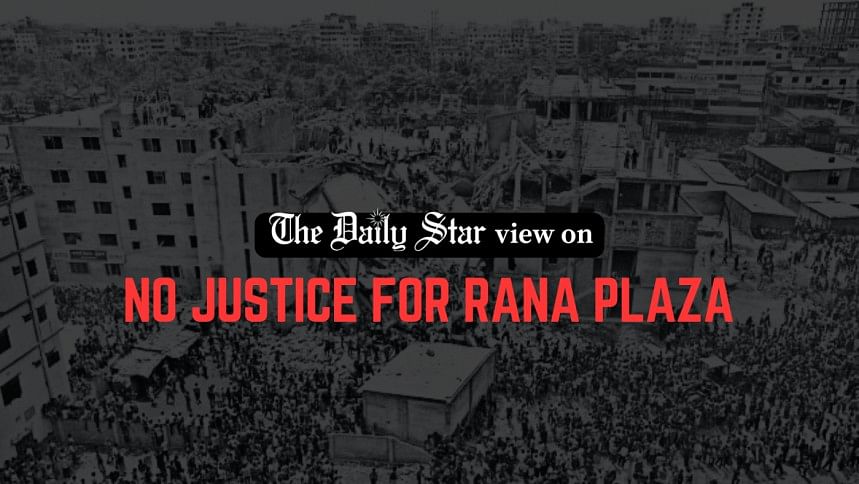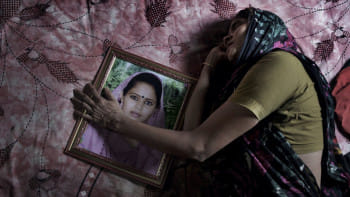Rana Plaza tragedy: Why is justice being put on hold?

The fact that there has been no significant progress in the cases filed over the Rana Plaza tragedy, even after a decade has passed by, is not just frustrating; it is a matter of shame for this country. According to the latest update on the case proceedings, presented by Bangladesh Legal Aid Services Trust (BLAST), all of the cases related to this incident—14 of them at present—are stuck in limbo. This is a burden on our collective conscience. The authorities concerned must explain why they are dragging their feet on delivering justice.
The eight-storey Rana Plaza in Dhaka's Savar area, which housed several RMG factories that sourced apparel products to renowned global clothing brands, collapsed on the fateful morning of April 24, 2013, killing at least 1,135 people (according to case documents), while at least 1,169 others were severely injured, suffering permanent disability. At that time, several cases were filed against multiple actors. Among them, the trial of two murder cases filed by police has yet to reach any verdict. Another case filed over the violation of building code has been stalled by a High Court stay order. No arrests have been made yet in the 11 cases filed by the Department of Inspections of Factories and Establishments (DIFE) against the owners of the RMG factories housed in Rana Plaza, according to BLAST.
From what we have seen so far, the perpetrators have taken full advantage of bureaucratic hurdles and legal loopholes to dodge punishment. Among those who were charged with murder, only the building owner, Sohel Rana, is in jail—the rest are either out on bail or on the run. And they include several public officials whose negligence and corrupt activities allowed this collapse to happen. Meanwhile, the victims' families as well as the survivors are living in a perpetual nightmare. Many of them have not been provided with proper compensation, nor the means for rehabilitation and employment. In this circumstance, would they be wrong if they questioned the authorities' sincerity in getting them justice?
The Rana Plaza collapse was the worst industrial disaster in the history of Bangladesh, not to mention one of the deadliest in the world. Given the sheer scale of death and destruction, the government should have given these cases the highest priority and put in all efforts to bring those responsible to book. Not doing so is a great disservice to the dead and the survivors, most of whom were RMG workers. It is their backs on which today's Bangladesh stands boasting speedy economic growth. This nation owes it to them to make sure that justice is not delayed any further. We must not let the deaths and sufferings of so many people go in vain.
Follow The Daily Star Opinion on Facebook for the latest opinions, commentaries and analyses by experts and professionals. To contribute your article or letter to The Daily Star Opinion, see our guidelines for submission.


 For all latest news, follow The Daily Star's Google News channel.
For all latest news, follow The Daily Star's Google News channel. 









Comments